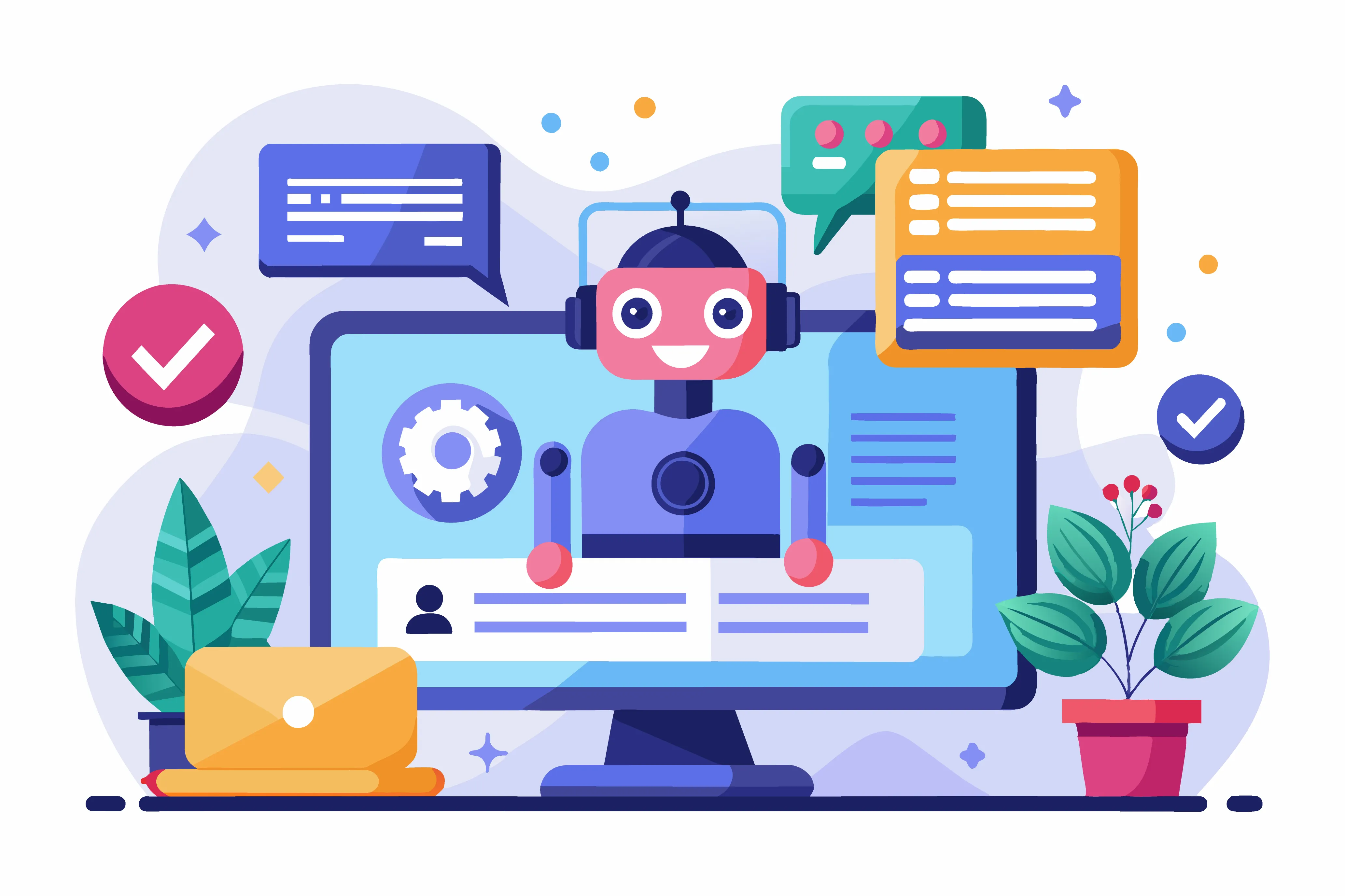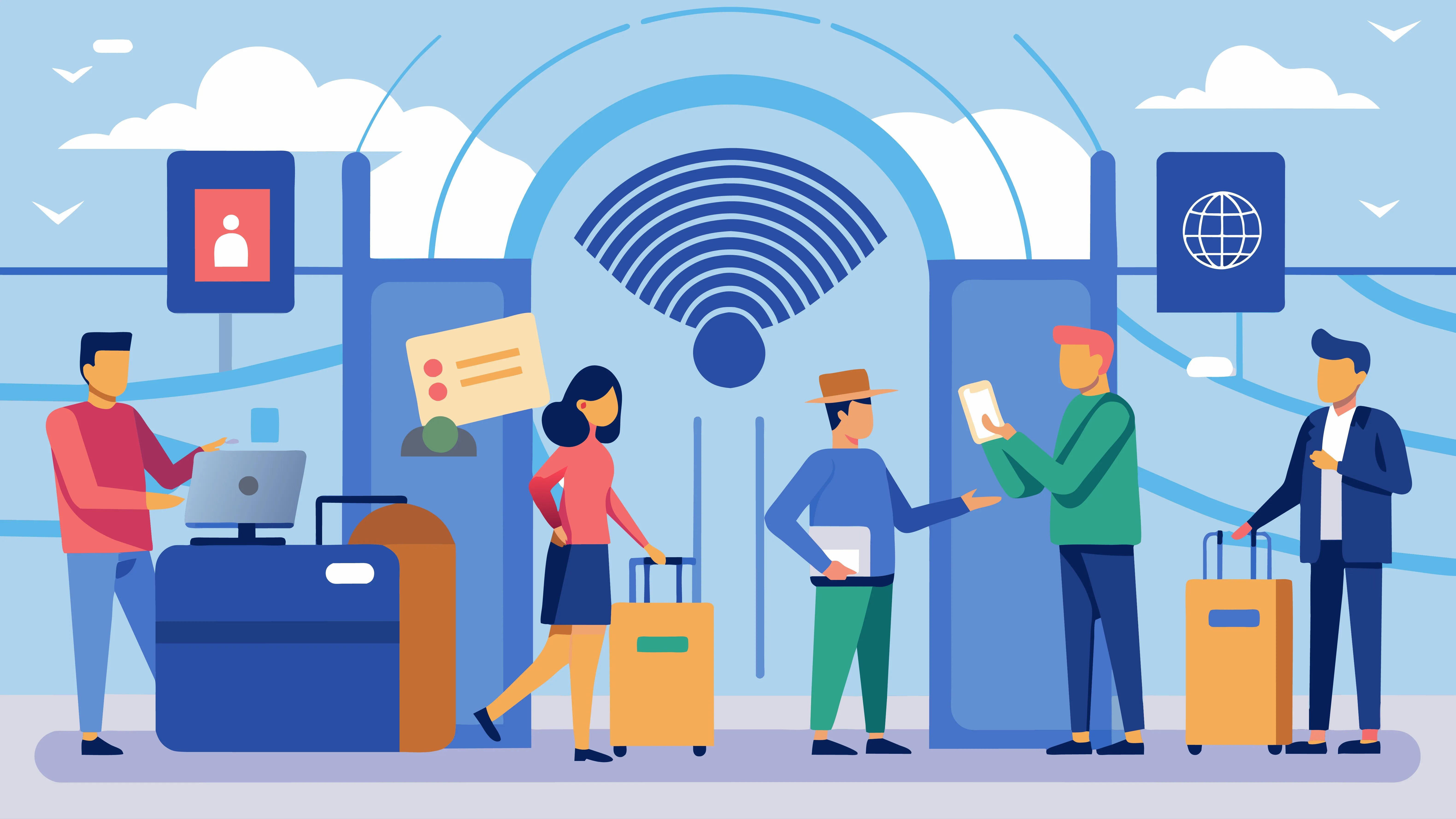AI in the hospitality industry refers to the integration of artificial intelligence technologies to enhance and streamline hotel operations, guest services, and overall business strategies. This involves leveraging tools such as machine learning, natural language processing, chatbots, and predictive analytics to automate repetitive tasks like check-in and check-out processes, housekeeping schedules, and guest inquiries. By automating these functions, hotels can significantly reduce operational costs and improve staff productivity.
World BI, a leading global event management company, continues to lead innovation in the hospitality sector. Known for curating high-impact conferences that address industry-shaping trends, World BI is proud to introduce the 2026 edition of “Digital Transformation in Hotel Technology.” As we delve deeper into the role of AI in the industry, an important question arises: Are AI generative technologies really secure for hotels? The event will also address the risks and benefits associated with deploying AI-driven tools, ensuring that industry professionals are equipped with the knowledge to navigate security, privacy, and operational challenges.
AI in Hotels:
- AI enables highly personalized guest experiences by analyzing customer data to understand preferences, behaviors, and past interactions.
This can translate into tailored room recommendations, customized welcome messages, dynamic offers, and targeted marketing campaigns that enhance customer satisfaction and loyalty.
- AI also plays a critical role in revenue management by using real-time data and market trends to dynamically adjust pricing strategies for rooms and services.
This helps hotels maximize occupancy rates and optimize profits throughout varying demand periods.
- In addition, AI supports more informed decision-making through predictive analytics and performance insights, allowing hotel managers to make proactive changes in areas such as staffing, inventory management, and maintenance. Ultimately, the use of AI in hospitality not only improves operational efficiency but also elevates the overall guest experience, making it smarter, faster, and more memorable.

How AI is Shaping the Hospitality Industry:
Artificial Intelligence (AI) is transforming the hospitality landscape by reshaping hotel operations, guest engagement, and revenue strategies. Through automation, personalization, and data-driven decision-making, AI is enabling hotels to deliver smarter and more efficient services. Key areas of impact include:
Personalising Guest Interactions
- Uses guest data (past behavior, preferences, feedback) to offer tailored experiences.
- Enables proactive service through AI-powered virtual concierges and 24/7 chatbots.
- Enhances guest satisfaction with seamless and customized stays.
Streamlining Operations
- Automates routine tasks like mobile check-ins, housekeeping, and room service.
- Increases efficiency and reduces staff workload.
- Allows staff to focus on high-touch, guest-centric services.
Optimising Pricing Strategies
- Applies dynamic pricing based on demand, competitor rates, and market conditions.
- Helps maintain high occupancy while maximizing room revenue.
- Enables real-time rate adjustments aligned with booking trends.
Enhancing Marketing Campaigns
- Leverages AI to segment audiences and personalize offers.
- Boosts conversions through targeted promotions and direct booking incentives.
- Improves ROI on marketing spend with data-driven strategies.
Boosting Revenue Management
- Analyzes large datasets to inform pricing, distribution, and promotional strategies.
- Enhances forecasting accuracy and revenue planning.
- Identifies the most profitable channels and pricing models.
Managing Big Data for Better Decisions
- Converts complex data into actionable business insights.
- Tracks guest behavior, operational metrics, and market trends.
- Supports strategic, data-informed decision-making across departments.
Is It Secure?
AI generative technologies, like chatbots, content creation tools, and recommendation engines, offer immense value to hotels in terms of personalization and operational efficiency—but their security depends on how they are implemented and managed.
Key Security Concerns Include:
- Data Privacy: Generative AI tools often require access to sensitive customer data (e.g., booking history, payment information, personal preferences). Without proper data governance and encryption, this can lead to privacy breaches.
- Unauthorized Access and Isuse: Poorly configured AI systems may be vulnerable to cyberattacks or data leaks, especially if integrated with other platforms without secure APIs or identity management.
- Content Integrity: AI-generated content (such as guest responses or marketing messages) may unintentionally produce misleading or inappropriate information if not properly reviewed or monitored.
- Regulatory Compliance: Hotels must ensure their AI systems comply with laws like the GDPR, CCPA, and others that govern how customer data is stored, processed, and used.
However, with the right safeguards in place, generative AI can be secure and beneficial, such as:

- Using enterprise-grade, vetted AI solutions with built-in compliance and security controls.
- Encrypting all sensitive data.
- Implementing access control and regular audits.
- Training staff on responsible AI use and monitoring outputs.
Solutions:
1. Organizational Readiness: Preparing Your Team and Systems for Generative AI
- Generative AI can support various hotel functions, including guest services and data analytics.
- Without skilled human oversight, there's a risk of inaccuracies and biased outputs.
- Employees are essential for:
- Monitoring AI behavior and output.
- Ensuring alignment with the hotel’s service standards and values.
- Making real-time adjustments based on daily operations.
- Readiness involves:
- Training staff to understand and manage AI tools.
- Developing a culture of responsible AI use.
2. Due Diligence: Conducting a Thorough Needs and Risk Assessment
- The value of AI depends on the task and specific hotel goals.
- A thorough assessment helps determine where AI can truly add value.
- Employees are key in:
- Identifying tasks best suited for AI vs. those needing human interaction.
- Highlighting areas that require empathy and personal service.
- Due diligence ensures:
- AI is applied where it enhances efficiency.
- Human-led interactions remain central to guest satisfaction.
3. Governance: Maintaining Oversight and Accountability Through Collaboration
- AI deployment in hotels requires continuous oversight to ensure ethical and guest-friendly use.
- Employees play a vital role in:
- Holding AI accountable to brand values and service quality.
- Monitoring, reviewing, and refining AI interactions regularly.
- Governance should include:
- Clear frameworks for ethical AI use.
- Cross-department collaboration (e.g., operations, IT, guest services).
- Regular feedback loops to improve AI performance and alignment.
World BI Hotel Technology Conferences:
Digital Transformation in Hotel Technology is highly anticipated event organized by World BI will explore cutting-edge advancements that are reshaping the hotel experience, with a particular focus on the transformative role of Artificial Intelligence (AI). AI is revolutionizing the hospitality landscape by reshaping hotel operations, enhancing guest engagement, and optimizing revenue strategies. From automation and personalization to data-driven decision-making, AI is enabling hotels to deliver smarter, more efficient services.